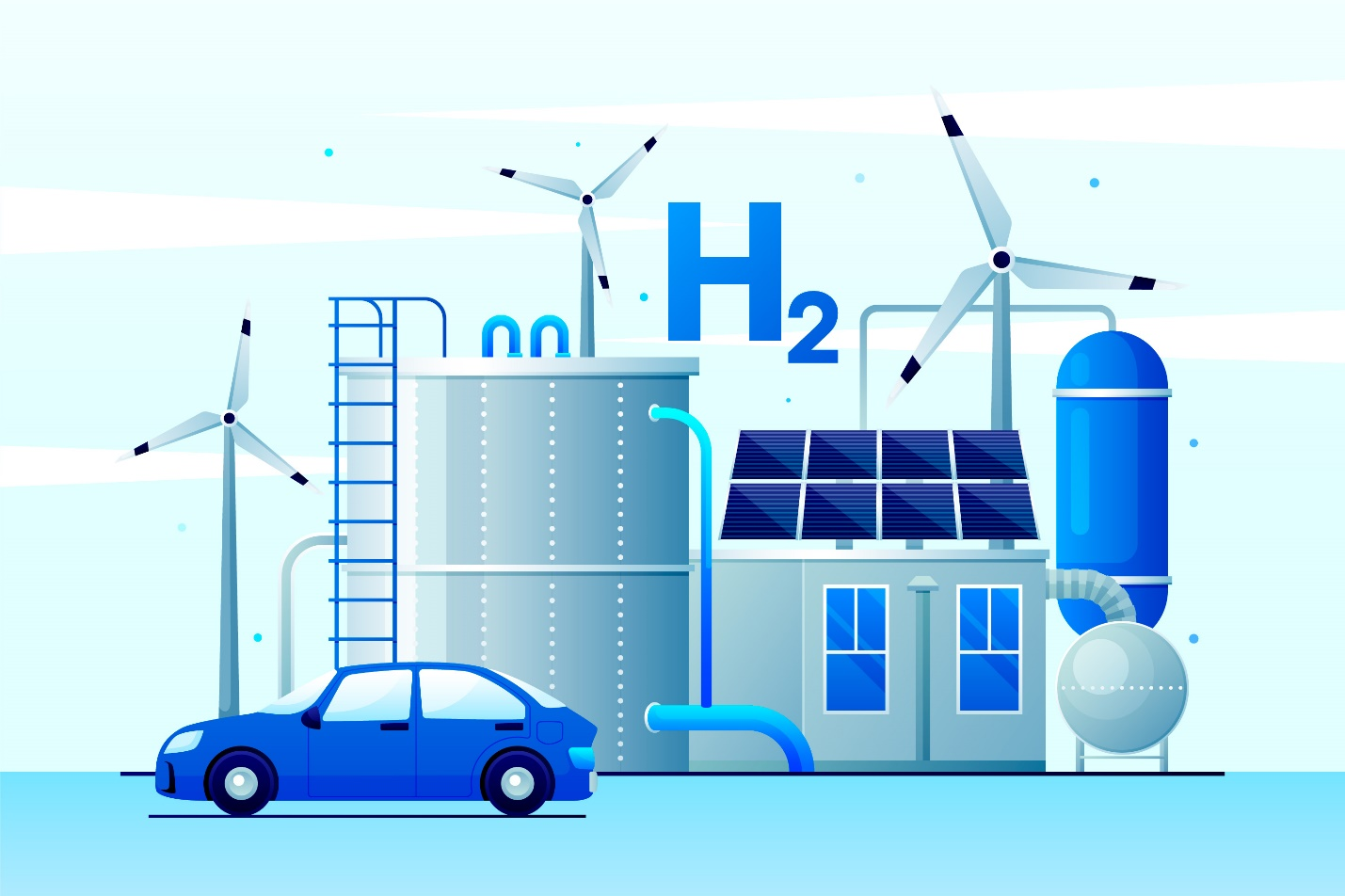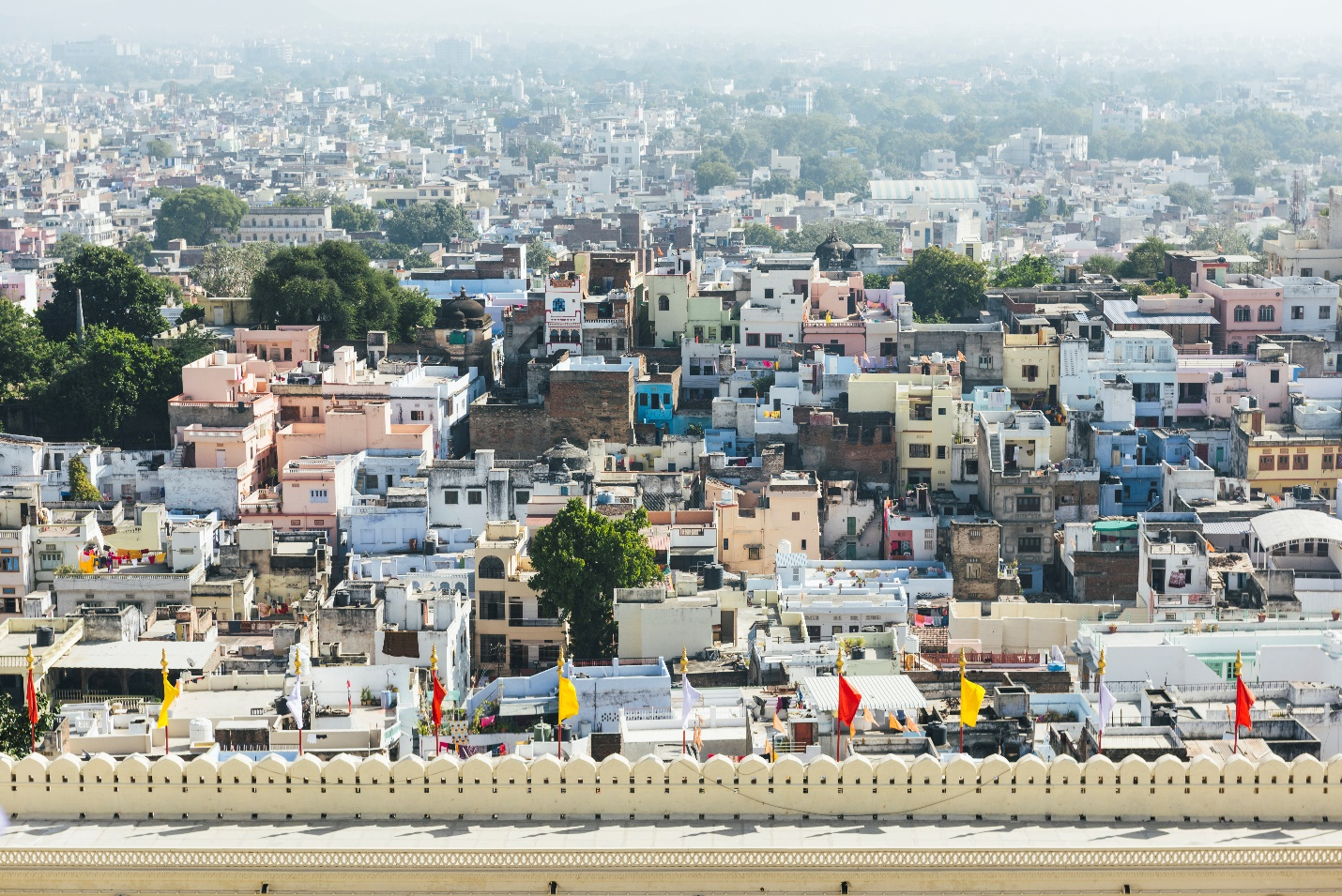India’s maritime legacy stretches along its 7,500-kilometre coastline, anchored by 12 major ports and over 200 minor ones. Positioned along the world’s busiest shipping routes, the country not only serves as a vital trading hub but is also emerging as a rising global power. In 2024, India accounted for nearly 17% of global economic growth, with its contribution projected to rise toward 20% in the coming years. Already the fourth-largest economy, India is on track to climb to the third spot by FY30. As the nation rises on the global stage, its maritime sector will play an increasingly pivotal role in shaping international commerce, connectivity, and cooperation.
Merchandise exports during FY26 (April-October) reached Rs. 22,50,875 crore (US$ 254.25 billion), up from Rs. 22,36,799 crore (US$ 252.66 billion) during the same period in FY25. In FY25, all key ports in India handled 853.56 million tonnes (MT) of cargo compared to 819 MT in FY24, while India’s 12 major ports alone handled 72.2 MT of cargo in December 2024, reflecting 3.22% growth. During FY26 (April-October), total Cargo handled by major ports was 513.80 MMT with overseas cargo and coastal cargo accounting for 77.30% and 22.70%, respectively. Paradip Port in Odisha emerged as India’s top major port by cargo volumes, handling 12.2 MMT in FY26 (April-October), accounting for nearly 16% of the total. It was followed by Deendayal Port Authority, which handled 14.1 MMT, contributing around 19% of the total cargo. Non-major ports are also gaining prominence, accounting for 46.42% of total cargo traffic in FY25 due to a steady shift from major ports. The total cargo handled by non-major port traffic stood at 433.76 MMT in FY26 (April-October). The overseas cargo handled at Non-Major Ports during FY26 (April-October) increased slightly with a 1.53% increase in overseas cargo and a 0.30% increase in coastal cargo.
The Government of India has created a strong policy and investment framework to boost the maritime industry. Foreign Direct Investment (FDI) of up to 100% is permitted under the automatic route for projects related to port and harbour construction and maintenance. The cumulative FDI equity inflow in the Port industry is Rs. 6,730.9 crore (US$ 1.6 billion) during the period April 2000-June 2025. Investors also benefit from a 10-year tax holiday for developing, maintaining, and operating ports, inland waterways, and inland ports. The National Maritime Development Programme (NMDP) has allocated Rs. 1,02,613 crore (US$ 11.8 billion) for sectoral development.
The Union Budget 2025-26 introduced several transformative measures, including the Rs. 25,000 crore (US$ 2.9 billion) Maritime Development Fund (MDF) to support ship acquisition and infrastructure, with the aim of raising the share of Indian-flagged ships in global cargo to 20% by 2047. The budget also extended the Shipbuilding Financial Assistance Policy (SBFAP) 2.0 with an outlay of Rs. 18,090 crore (US$ 2.08 billion), offering subsidies to Indian shipyards. In parallel, India will invest Rs. 75,000 crore (US$ 8.72 billion) over five years starting July 2025 to establish three shipbuilding clusters along its east and west coasts.
Technology and sustainability are shaping India’s maritime future. The One Nation One Port Process (ONOP), launched in February 2025, aims to unify documentation and processes across all major ports, cutting paperwork by 25% and reducing logistics costs. The Conference on Maritime Decarbonization in India, held in October 2024, reinforced the nation’s net-zero emissions target by 2070 through initiatives like Harit Sagar and Harit Nauka guidelines for green ports and cleaner shipping. Additionally, India and the Netherlands are collaborating to create a green digital corridor connecting Indian ports with the Port of Rotterdam for exporting green hydrogen and carriers like ammonia and methanol, as part of India’s Maritime Vision 2030.
Large-scale infrastructure initiatives under the Sagarmala Programme and its expansion under Sagarmala 2.0 continue to drive sectoral transformation. As of August 2025, 279 port-connectivity projects worth Rs. 2,06,363 crore (US$ 24.14 billion) have been identified, including 149 projects worth Rs. 1,22,971 crore (US$ 14.39 billion), of which 82 have been completed. These include 114 rail projects (Rs. 1,00,599 crore) with 49 completed, 152 road projects (Rs. 98,422 crore) with 26 completed, and 10 Multi-Modal Logistics Parks (Rs. 2,237 crore), of which four are operational. Sagarmala 2.0 aims to mobilise Rs. 12,00,000 crore (US$ 139 billion) in investments between 2025 and 2035 with Rs. 40,000 crore (US$ 4.6 billion) in government support, focusing on shipbuilding, port modernisation, and coastal economic growth.
Port modernisation remains a key priority, with 234 projects worth Rs. 2,91,622 crore (US$ 34.12 billion) identified under Sagarmala. Of these, 98 projects worth Rs. 32,066 crore (US$ 3.75 billion) have been completed and 62 projects worth Rs. 75,650 crore (US$ 8.85 billion) are under implementation as of August 2025. Public Private Partnerships (PPPs) also continue to drive growth, with 46 projects valued at Rs. 39,045 crore (US$ 4.49 billion) underway at major ports.
The Union Cabinet has approved the construction of a six-lane access-controlled greenfield high-speed National Highway, connecting Jawaharlal Nehru Port Authority (JNPA) Port (Pagote) to Chowk (29.219 kilometer) in Maharashtra at an investment of Rs. 4,500 crore (US$ 521.50 million).
At India Maritime Week 2025, investment pledges worth Rs. 12 lakh crore (US$ 135.5 billion) were signed, with approximately 30% directed toward port development and modernization. This aligns with India's goal to scale its maritime sector significantly.
In FY25, 962 acres of land were allocated for port-led industrialisation, expected to generate Rs. 7,565 crore (US$ 887.80 million) and attract future investments of Rs. 68,780 crore (US$ 8.07 billion).
India’s Major Ports have achieved significant milestones in FY25, demonstrating notable progress in cargo handling, operational efficiency, and infrastructure development. Major Ports recorded a 4.3% growth in cargo handling, reaching approximately 855 million tonnes, up from 819 million tonnes in FY24. Key drivers for this growth included increased container throughput (10%), fertilizer cargo handling (13%), and Petroleum, Oil, and Lubricants (POL) cargo (3%). Paradip Port Authority (PPA) and Deendayal Port Authority (DPA) surpassed the 150-million-tonne cargo handling mark for the first time. At the same time, Jawaharlal Nehru Port Authority (JNPA) set a new record with 7.3 million twenty-foot equivalent units (TEUs), reflecting a 13.5% YoY growth.
The government encourages private sector participation through PPPs to modernize port terminals and improve logistics. Around 50% of major ports operate under PPPs currently, expected to grow to 85% over the next decade. PPPs have contributed around Rs. 550 billion (US$ 6.2 billion) in investments over 25 years.
India and the Netherlands will establish a green and digital corridor between Indian ports and the Port of Rotterdam to boost clean energy trade. This initiative focuses on exporting green hydrogen and its derivatives to Europe while enhancing port digitalisation, green shipping, and logistics, aligning with India’s Maritime Vision 2030 to modernise port infrastructure. India plans to roll out Rs. 4,000 crore (US$ 454 million) in incentives over 10 years from 2026 to boost its shipbreaking industry and reclaim market share from Bangladesh and Pakistan.
In October 2024, Union Cabinet approved the development of the National Maritime Heritage Complex (NMHC) at Lothal, Gujarat, showcasing India’s 4,500-year-old maritime heritage. This project is expected to enhance employment, tourism, and cultural preservation with phased development supported by public-private partnerships with a completion goal of 2025 for its first phase.
On 19 June 2024, the Government of India approved the establishment of a Major Port at Vadhavan, Maharashtra, with an estimated cost of Rs. 76,220 crore (US$ 9.14 billion), aiming to enhance EXIM trade capacity and accommodate mega vessels, while facilitating public-private partnerships for infrastructure development.
On February 2023, sanctioned projects under PPP include upgrading JNPA Hospital to a 100-bed multi-specialty hospital Rs. 59.13 crore (US$ 6.8 million), developing Berth No.13 at Deendayal Port for handling clean cargo Rs. 206.96 crore (US$ 23.8 million), and mechanizing NCB-III at V.O. Chidambarnar Port for dry bulk cargo Rs. 328.71 crore (US$ 37.8 million).
Additionally, operations and maintenance of Berth Nos. 10 & 11 at Mormugao Port, Goa Rs. 1,73,050 crore (US$19.9 million), and the development of Mumbai Marina at Prince's Dock of Mumbai Port Authority Rs. 714.81 crore ((US$ 82.2 million) were approved under PPP arrangements in February 2023.
Minister for Finance, and Corporate Affairs Ms. Nirmala Sitaraman, proposed to double the ship recycling capacity of ~4.5 million light displacement tonnes (LDT) by 2024; this is expected to generate an additional ~1.5 lakh employment opportunities in India.
Adani Group plans Rs. 26,088 crore (US$ 3 billion) investment over three to five years to expand global ports capacity, targeting strategic acquisitions in Europe, Africa, and Southeast Asia to increase revenue from overseas ports to 20-25% and support the India-Middle East-Europe Economic Corridor.
India plans to establish a new shipping company to expand its fleet by at least 1,000 ships in the next decade, aiming to reduce freight costs and capture more revenue from increasing trade, with joint ownership by state-run oil, gas, and fertilizer companies, along with the state-run Shipping Corporation of India and foreign companies, targeting a reduction of at least one-third in foreign freight outgoings by 2047.
The Conference on Maritime Decarbonization in India, held in October 2024, reinforced the nation’s goal of net-zero emissions by 2070, showcasing initiatives like Harit Sagar and Harit Nauka guidelines for green ports and cleaner shipping. India and the Netherlands plan to establish a green, digital corridor linking Indian ports with the Port of Rotterdam to export green hydrogen and its carriers, including ammonia and methanol, to Europe, under India’s Maritime Vision 2030.
Adani Ports and Special Economic Zone Ltd. has secured a five-year operation and maintenance contract at Kolkata Port, which will help the company enhance synergies with its transshipment hubs in Colombo and Vizhinjam.
Adani Group has announced an investment of Rs. 30,000 crore (US$ 3.46 billion) in Kerala over the next five years, focusing on infrastructure, logistics, and manufacturing expansion.
Under the Sagarmala Programme, 45 projects totaling Rs. 47,166 crore (US$ 5.69 billion) have been earmarked for execution at Non-Major Ports. Of these, 4 projects worth Rs. 5,419 crore (US$ 0.65 billion) have been finalized, while 17 projects valued at Rs. 27,673 crore (US$ 3.34 billion) are presently underway. Thirty-one out of the 45 projects are being carried out through Public-Private Partnership (PPP) mode, with a collective investment of Rs. 45,973 crore (US$ 5.54 billion).
Private sector involvement has been vital, with investments in public-private partnership (PPP) projects tripling from Rs. 1,329 crore (US$ 155.96 million) in FY23 to Rs. 3,986 crore (US$ 467.78 million) in FY25.
In FY25, 962 acres of land were allocated for port-led industrialisation, expected to generate Rs. 7,565 crore (US$ 887.80 million) and attract future investments of Rs. 68,780 crore (US$ 8.07 billion).
India’s Major Ports have achieved significant milestones in FY25, demonstrating notable progress in cargo handling, operational efficiency, and infrastructure development. Major Ports recorded a 4.3% growth in cargo handling, reaching approximately 855 million tonnes, up from 819 million tonnes in FY24.
India’s ports sector is set for major expansion between FY23 and FY28, with an estimated annual capacity addition of 500-550 Million Tonnes Per Annum (MTPA). This growth is primarily driven by increased handling of Petroleum, Oil, and Lubricants (POL), coal, and containerized cargo.
The total cargo handled by non-major port traffic stood at 185.87 MMT in FY26 (April-June).
The overseas cargo handled at Non-Major Ports during FY26 (April-June) increased slightly with a 0.28% increase in overseas cargo and a 2.95% increase in coastal cargo.
India’s 12 major ports handled 819.227 million tonnes of cargo in FY24, a 4.45% increase from 784.305 million tonnes in FY23, driven by strong growth in iron ore, raw fertilizer, coking coal, and container shipments, with Jawaharlal Nehru Port Authority handling over half of the total container volumes.
On Nov 18, 2024, the Andaman and Nicobar administration announced plans to introduce seaplane services connecting Port Blair to Swaraj Dweep, Shaheed Dweep, and Long Island. A recent demonstration showcased a seaplane that can land on both land and water, carrying up to 16 passengers, boosting tourism.
On 29 July 2024, Secretary Mr. T.K. Ramachandran reviewed the functioning of the Paradip Port Authority (PPA) and inaugurated key projects worth over Rs. 13 crore (US$ 1.56 million), including a Trauma and Burn Care Centre and a Water Treatment Plant with a capacity to filter 16 million litres of water per day, enhancing the port's infrastructure and services.
On July 26, 2024, the Government of India announced 29 new proposals from Andhra Pradesh and Visakhapatnam Port Trust under the Sagarmala project, totaling approximately Rs. 3,300 crores (US$ 395 million). These initiatives include port development and fish landing centers.
In July 2024, Union Minister for Ports, Shipping, and Waterways Mr. Sarbananda Sonowal approved a Rs. 284.19 crore (US$ 34 million) project by the Jawaharlal Nehru Port Authority (JNPA) to establish a comprehensive agricultural commodity processing and storage facility aiming to streamline logistics, reduce handling stages, and extend the shelf life of agricultural products. The projected export capacity includes a frozen store of 1,800 metric tonnes, a cold store of 5,800 metric tonnes, and dry warehouses for 12,000 metric tonnes of grains, cereals, and dry cargo.
On July 26, 2024, the Government of India announced an update to the Shipbuilding Financial Assistance Policy (SBFAP), which has provided financial aid totaling Rs. 337 crores (US$ 40.40 million) to enhance India’s competitiveness against foreign shipyards and revitalize the shipbuilding industry. Since the policy's inception, 313 vessel orders valued at approximately Rs. 10,500 crores (US$ 1.26 billion) have been secured.
APSEZ handled a record 450 million tonnes of cargo in FY25, achieving a 7% YoY increase in domestic port operations. The company continued its expansion and now operates 15 ports across India, with Mundra Port surpassing 200 million tonnes in annual cargo volume for the first time.
On March 15, 2024, The Ministry of Ports, Shipping and Waterways approved Rs. 645 crore (US$ 77.79 million) for 10 new waterways projects on the Brahmaputra in Assam, enhancing connectivity, boosting river tourism, and facilitating public commute, all under the Sagarmala programme.
On March 07, 2024, the Union Minister for Ports, Shipping, and Waterways, Mr. Sarbananda Sonowal approved a project exceeding Rs. 800 crore (US$ 96.48 million) to revamp Syama Prasad Mookerjee Port, Kolkata, encompassing berth reconstruction and mechanization to enhance operational efficiency and global competitiveness.
On February 20, 2024, The Union Minister of Ports, Shipping & Waterways and Ayush, Mr. Sarbananda Sonowal initiated major waterways projects in Northeast India, including inaugurating terminals at Bogibeel and Sonamura, unveiling projects worth Rs. 308 crore (US$ 37.14 million) and announcing initiatives for improved connectivity and economic growth.
The Ministry of Ports, Shipping and Waterways will invest over Rs. 57,000 crore (US$ 6.55 billion) to boost Kandla Port’s capacity, including a Rs. 30,000 crore (US$ 3.45 billion) mega shipbuilding project and a Rs. 27,000 crore (US$ 3.10 billion) cargo terminal.
On September 19, 2023, the Ministry of Ports, Shipping, and Waterways proposed the Indian Ports Bill with the aim of enhancing transparency in port tariffs and updating penalties. The bill empowers the Maritime States Development Council (MSDC) for integrated planning and introduces a three-tier dispute resolution mechanism for conflicts between state maritime boards.
Paradip Port in Odisha emerged as India's largest major port in terms of cargo volumes, handling 145.38 million tonnes in FY24, surpassing Deendayal Port Authority in Gujarat for the first time in its 56-year history, driven by improved operational efficiency, record coastal shipping traffic, and increased thermal coal shipping.
The “Green Port Guidelines” issued by the Ministry of Ports, Shipping and Waterways in May 2023 provide a roadmap for Indian major ports to reduce carbon intensity through green technologies, renewable energy, electrification, waste minimisation, environmental monitoring, and sustainability targets consistent with national de-carbonisation goals.
On August 24, 2023, the Ministry of Ports, Shipping and Waterways initiated the development of a Next-Gen Container Terminal at Tuna Tekra, Gujarat, through a Rs. 4,243.64 crore (US$ 511.7 million) PPP agreement with DP World, enhancing port infrastructure and trade connectivity.
On January 27, 2023, the Honorable Minister for Ports, Shipping, and Waterways inaugurated the National Logistics Portal (Marine). This platform connects logistics stakeholders, enhancing efficiency, transparency, and reducing costs and time delays through IT integration. Covering all transport modes, it offers seamless end-to-end logistics service coverage.
India’s maritime sector is charting a course of rapid expansion, backed by strong policy support, infrastructure modernisation, and growing private participation. With increasing cargo volumes, investments in shipbuilding, and a clear push for digitalisation and sustainability, the industry is set to play a defining role in global trade. Looking ahead, India’s ports and shipping ecosystem will not only strengthen economic growth but also position the nation as a leading hub for connectivity, innovation, and green maritime solutions.














